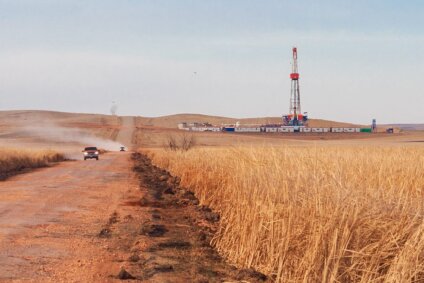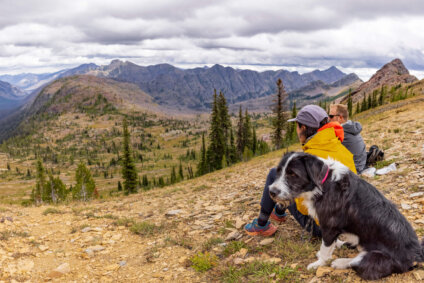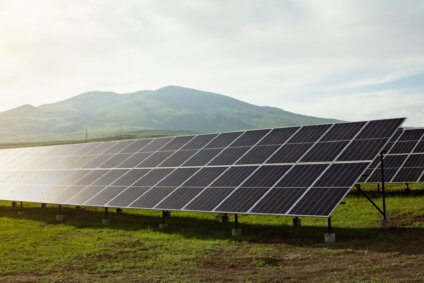Wilderness Is Community
As social media disconnects us from one another, we need wilderness now more than ever
“Allison!” someone yelled from around a bend in the trail. Though I was twenty miles deep in the Bob Marshall Wilderness, hiking back to civilization from my job in the backcountry, I can’t say that I was terribly surprised to hear my name called out.
“How’s it going?” Carl asked as he rounded the corner on his horse with a string of mules behind him. No “funny seeing you here,” just a greeting as normal as you might offer a co-worker in the office break room. Carl jumped off his horse, tied it and his mule string up, and walked over to me. “Want a cup of coffee?” he asked, holding up a small thermos. I smiled gratefully. “Sure!”
Outside wilderness, in my “normal” life, I see the ways we remove ourselves from community. As I drive around town I check my phone for texts at stoplights. I eat my lunch outside and play a game on the tiny iPhone screen. Sometimes when my boyfriend starts talking about European soccer (something that interests me about as much as dangling participles interest him), I stare at my phone to see what my friends are up to on Instagram. I am appalled that I waste valuable time this way with someone I love, but I do it anyway. On a road trip to a remote cabin with girlfriends, I had to remember to keep myself off of social media so I didn’t spend the whole car ride glued to my phone. I was thankful when my phone died.
Have we lost our ability to build community? Have we lost our sense of joy in the company of others? These are not new questions in our tech age – many retreats and vacations now boast forced disconnects, purposely offering no wifi or cell service. We say the word “social” as in “media” now more than ever, but do we even remember the last “social” gathering we went to, where we really appreciated the conversations around us and didn’t stand awkwardly among strangers grasping for a phone to not appear alone? Think on that for a moment: holding a phone to not appear alone.
I have a solution, and it’s wilderness. Wilderness is the answer to building community. I know this because I have seen it directly.
Seven years ago, when I was a 22-year old recent college graduate, I took a job with the Forest Service in the Bob Marshall Wilderness. The job was based 33 miles from the nearest road, at Big Prairie Workstation, a structure grandfathered in by the Wilderness Act. Working there would mean a summer without Internet, phones, electricity, or friends. I dove in and ended up returning five years in a row. There were many reasons I kept going back. The job – which entailed clearing trails, manning fire lookouts, and greeting backpackers, rafters, outfitters, and stock parties – was fantastic. The place was pristine and so full of what I needed in life (space, air, beauty, a renewed connection to myself) while also devoid of what I thought I needed in life (new cars, trendy clothes, fancy apartment decorations, etc.).
The main reason I returned though was, of course, the community. Every night, whoever was at the station or on the trail crew cooked dinner and ate together on the porch. After dinner, we would have a little soccer game maybe, a dip in the river, or quiet reading time. We all gathered joyfully once a week on the porch when the packer brought us mail and groceries. We laughed while reading letters together and comforted someone who received difficult news from home. On weekends, people would drift into the kitchen and make breakfasts in small groups, or someone would just bust out a batch of pancakes. We all ate together on the porch again. We did that at every meal, actually. I know it sounds outlandishly idyllic. It sounds a little fake even as I type it. But it was real, and we loved every minute of it.
Often, we would casually mention how it would all be different if we had phones. I realized one day that our dinner conversations were a product of not having any distractions. The idea of posting something on Facebook became a joke. More than anything, I remember those porch moments with complete clarity. I wasn’t waiting for a text or looking for something else to do. I had absolutely no idea what any of my friends in the outside world were doing. We were entirely immersed in the moment.
If that experience isn’t powerful enough, it builds an equally strong community outside of the wilderness. Since I left the woods, I have run into numerous people I worked with in the Bob Marshall, and there has never been a moment of weirdness. A friend I hadn’t talked to in person for two years gave me a place to stay at his family home in New Orleans. I ran into an artist I hadn’t seen in five years, and we chatted over coffee like we had just seen each other yesterday. I have seen people at concerts, in airports, in other countries. They shout our woods nicknames, and there is never a moment of bristling or confusion or even, really, shock.
The same sense of community holds true with wilderness supporters. Never have I experienced a community outside of the woods like I have among wilderness advocates. Being a wilderness advocate immediately signals many things we all have in common – we like to be outside, we hike, we might hunt or fish, we prioritize wellness and active living, we hope to pass on our love of wildlands to future generations. We all go places where technology is not at our noses, where it’s not necessary, where it’s frowned upon to have a phone in our hands. Priorities are clear in this community, and we remember our priorities are each other, and the land.
– MWA state council member Allison Linville received an MFA from the University of Montana. Her writing has appeared in High Country News and conservemontana.org.
Stay Connected
"(Required)" indicates required fields


